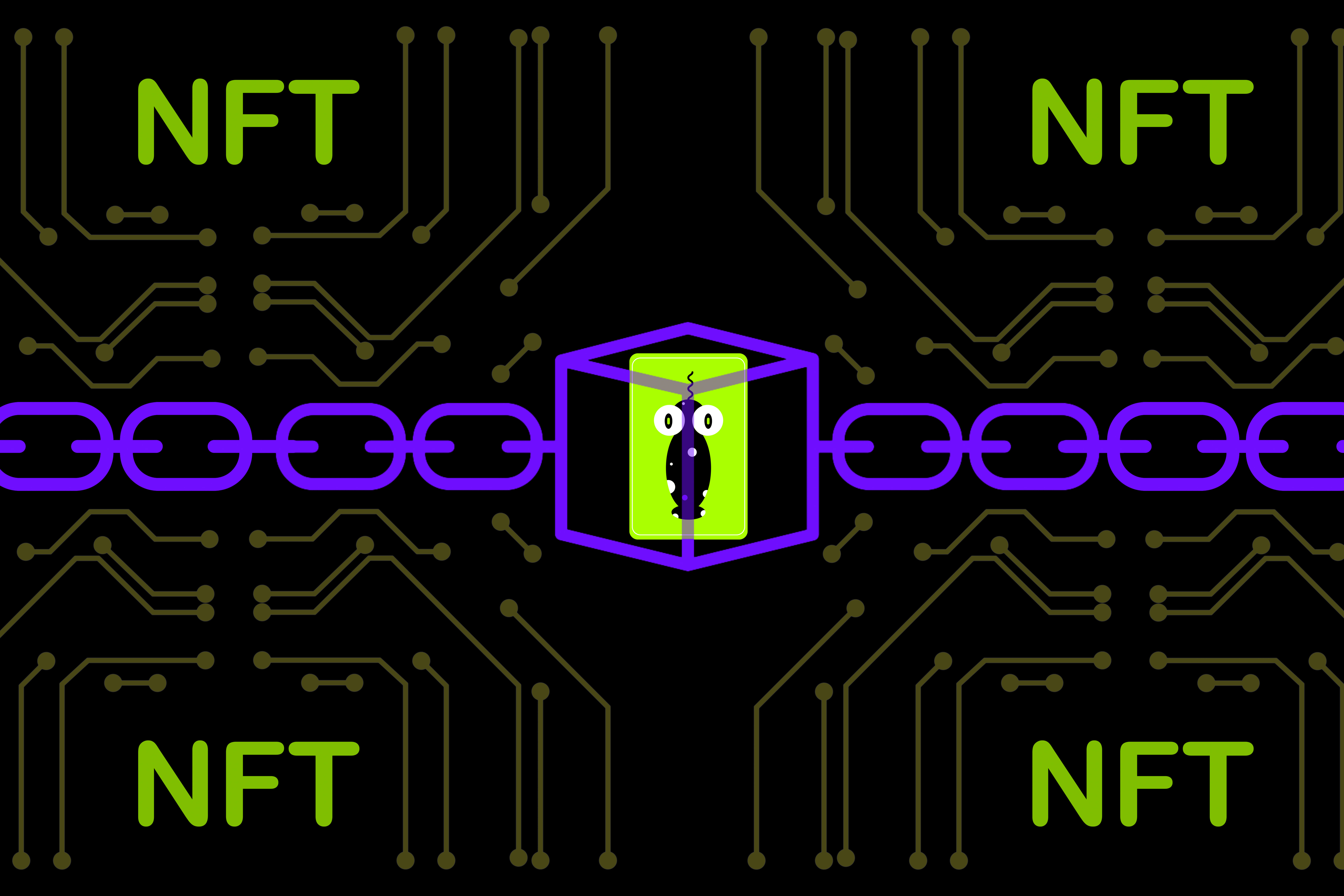- Sales of NFTs, or nonfungible tokens, have exploded in recent weeks, but many buyers and sellers aren't likely aware of tax rules governing these transactions.
- Those who use cryptocurrency to buy NFTs could face capital gains taxes.
- The IRS states that "if you exchange virtual currency held as a capital asset for other property, including for goods or for another virtual currency, you will recognize a capital gain or loss."
NFT non-fungible tokens art and collectables illustration, use blockchain technology to create unique digital items for crypto art, crypto-collectibles and crypto-gaming.holly harry | iStock | Getty Images
The NFT craze may come with a painful tax surprise for buyers and sellers who use cryptocurrencies, according to tax experts.
Sales of NFTs, or nonfungible tokens, have exploded in recent weeks, topping $500 million in 2021, according to NonFungible.com. Along with the sale of the $69 million Beeple NFT titled "Everydays: The First 5,000 Days" at Christie's last week, and the $3 million NFT sneakers, NFTs of everything from NBA highlight videos to Jack Dorsey tweets have created a vast new market of blockchain-based digital assets to buy and sell.
Yet experts say buyers and sellers aren't likely aware of an Internal Revenue Service tax rule that could come back to haunt them — and cost them a big chunk of their gains. It involves a steep potential tax on anyone who uses their highly valued cryptocurrency to buy NFTs, which experts say is most NFT sales.
"People's knowledge of this tax in the U.S. is very poor," said Shehan Chandrasekera, head of tax strategy at CoinTracker, a platform for tracking crypto portfolios and taxes. "I just don't think people know about it."
At issue is recent IRS guidance on using cryptocurrencies to buy an asset, including an NFT. As part of its principle known as "disposition of assets," the IRS states that "if you exchange virtual currency held as a capital asset for other property, including for goods or for another virtual currency, you will recognize a capital gain or loss."
Chandrasekera said this has major implications for the NFT craze, which is largely being fueled by collectors using bitcoin or ether to buy NFTs. For example, if someone purchased a unit of ether for $100 in 2018, it's now would worth around $1,700. If they used that ether unit to buy a $1,700 NFT, they might assume they pay no tax on the ether, since they're simply using it to buy a good or service.
"EVERYDAYS: THE FIRST 5000 DAYS" is a collage, by a digital artist BEEPLE, that is on auction at Christie's, unknown location, in this undated handout obtained by Reuters.Christie's Images LTD. 2021/BEEP | via Reuters
But under the IRS rules, the ether is a capital asset not a currency. So the holder would have to pay tax on the gain of $1,600 as part of the NFT purchase, since the act of exchanging it for another asset counts as a sale or "disposition." So they would owe the IRS — assuming a top capital gains rate of 20% — a tax of $320. They might also owe state taxes, since many states like New York and California tax capital gains as income. (The rules around additional sales taxes in each state for NFTs are less clear.)
"You're not spending currency, you're spending an appreciated asset," Chandrasekera said. "So just spending it creates a taxable event."



